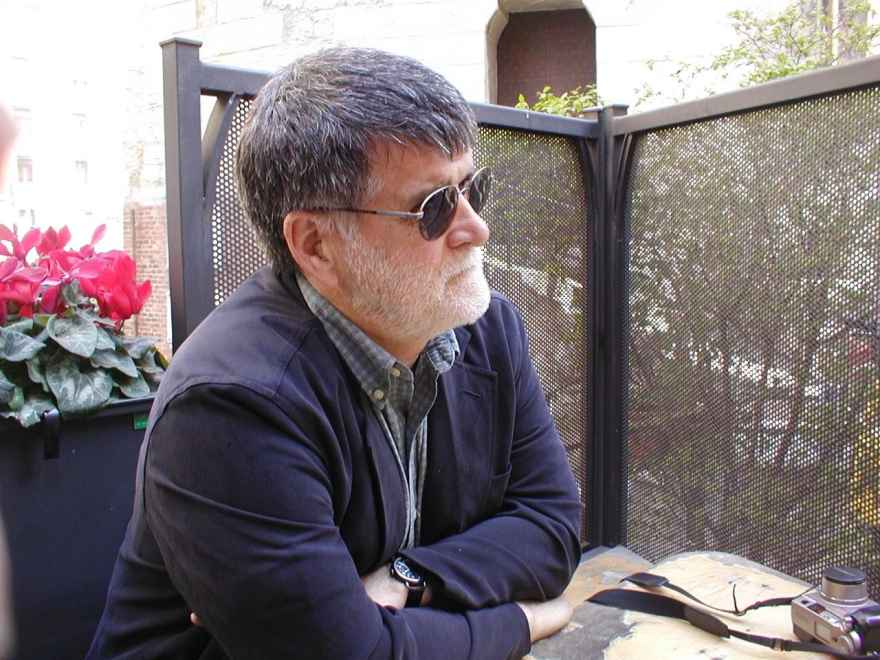William Walker Tait, renowned UChicago philosopher of mathematics, 1929‒2024

The following was published in UChicago News on March 28, 2024.
By Sara Patterson
Prof. Emeritus William Walker Tait, an acclaimed philosopher and mathematician at the University of Chicago, died March 15 in Naperville, Ill.. He was 95.
Known by colleagues as one of the most distinguished philosophers of mathematics of the second half of the 20th century, Tait was professor emeritus in the Department of Philosophy and the Committee on the Conceptual and Historical Studies of Science at UChicago. During a career spanning 60 years, he made significant contributions to development of proof theory, as well as to logic and the philosophy of mathematics.
“Bill Tait was chair of Philosophy when I joined the department in 1981 and he was arguably the best chair I knew, standing up for the department and junior faculty—often against the administration—with a fierce moral determination but a twinkle in his eye,” said Josef Stern, the William H. Colvin Professor Emeritus in the Department of Philosophy at UChicago. “His main areas of research were mathematical logic, especially proof theory and finitism, and the philosophy and history of mathematics and logic, in which he published important papers on figures and topics ranging from Frege, Cantor, Gödel, and Plato to Wittgenstein and Kripkean skepticism.”
In his early years, Tait provided an original study of functionals of transfinite type, with results that later also found applications in combinatory logic and lambda calculus.
As his career progressed, Tait moved to considering the philosophical aspects of the constructivist means used in such work. A well-known example was his article “Finitism,” published in The Journal of Philosophy (1981), in which he argued for an understanding of Hilbertian finitism through primitive recursive arithmetic. Tait also wrote important historical-philosophical studies of main figures in logic and the philosophy of mathematics, most notably Georg Cantor, Ernst Zermelo and Kurt Gödel.
He was the editor of Early Analytic Philosophy: Frege, Russell, Wittgenstein (in honor of Leonard Linsky) (1996) and the author of The Provenance of Pure Reason: Essays in the Philosophy of Mathematics and Its History (2005), as well as numerous journal articles.
Distinguished career
Tait was born on Jan. 22, 1929, in Freeport Long Island, N.Y. He earned his bachelor’s degree from Lehigh University in 1952 and his doctorate in philosophy from Yale University in 1958. At Yale, he studied with the well-known philosophers Frederick Fitch and Alan Ross Anderson. From 1954 to 1955, Tait was a Fulbright Scholar at Municipal University in Amsterdam.
In 1957, during his doctoral studies, he attended a summer school at the Institute of Symbolic Logic at Cornell University where he met several major logicians including Alfred Tarski, Georg Kreisel and Paul Halmos. Those connections had a strong influence on his work, according to a Festschrift celebrating his life and work by Erich H. Reck, a professor of philosophy at the University of California, Riverside.
Before his long tenure at the University of Chicago, Tait taught at Stanford University from 1958 to 1964, at the University of Illinois‒Chicago from 1965 to 1971 and at Aarhus University from 1971 to 1972.
Arriving at UChicago in 1972, he served as the Chair of the Department of Philosophy from 1981 to 1987.
“From the 1970s to the 1990s, he was a central figure in a group of faculty members—including David Malament, Howard Stein, Ian Mueller, Bill Wimsatt, and Leonard Linsky—who made UChicago the place to study the philosophy and history of physics and mathematics, logic, biology, and figures like Frege and Russell,” Stern said.
Though Tait retired in 1996, he actively pursued his research, which included giving the well-known Skolem Lectures and Tarski Lectures. In 2002, Tait was elected to the American Academy of Arts and Sciences.
Until his death, Tait worked on solving a complex problem—a problem that he pondered for at least 50 years. Tait believed that he had solved it and asked that it be sent to colleagues in the field, which was done, according to his partner Rebecca West, the William J. Kenan, Jr., Distinguished Service Professor Emerita in the Departments of Romance Languages and Literatures and Cinema and Media Studies and the College at UChicago.
“Bill was very distinguished in his field of the philosophy of mathematics and in later years worked on Plato quite a bit,” West said. “He loved to mountain climb, to cycle and to welcome students into his home.”
In addition to West, Tait is survived by his daughter, Sophia Bartelt, son-in-law, Scott Bartelt, and his grandsons, Kyle Bartelt and Alexander Bartelt.